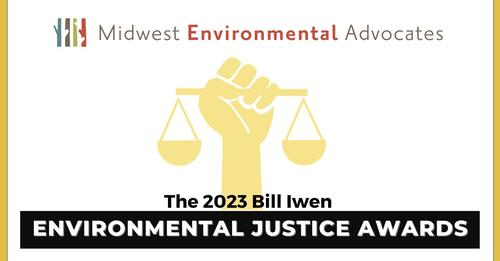On October 26, the Midwest Environmental Advocates held a ceremony naming MEJO founder Maria Powell as one of its 2023 Bill Iwen Environmental Justice Awardees. MEJO Vice President Touyeng Xiong accepted the award on her behalf.

MARIA POWELL
Maria Powell is a co-founder of Madison Environmental Justice Organization (MEJO), an organization dedicated to working with low-income communities and communities of color throughout the Midwest to identify and reduce sources of toxic contamination. Eschewing academia, Maria found grassroots work doing citizen science with community members more rewarding. She has worked tirelessly to break down cultural and language barriers between community members and decision makers. Her efforts to get fish consumption advisories posted in multiple languages throughout the Madison area were crucial to protecting subsistence anglers, who are predominantly comprised of members of the Black, Latinx, and Hmong communities. Maria was among the first to bring attention to the planned deployment of F-35s at Truax Field where impacts to surrounding low-income communities would be profound. She successfully urged the Madison Water Utility to proactively communicate about PFAS contamination, to shut down one of Madison’s municipal wells when it was found to be contaminated, and to test all the city’s wells to ensure that no one was being exposed to toxic PFAS substances without their knowledge. In addition, Maria investigated Madison-Kipp Corp.’s ongoing vapor intrusion and PCB contamination issues, which affected the surrounding neighborhood and led to a successful lawsuit for affected neighbors. In addition to dozens of peer-reviewed journal articles, she is lead author on “Invisible People, Invisible Risks: How scientific assessments of environmental health risks overlook minorities—and how community participatory science can make them visible” in the MIT Press book, Technoscience and Environmental Justice: Expert Cultures in a Grassroots Movement.

